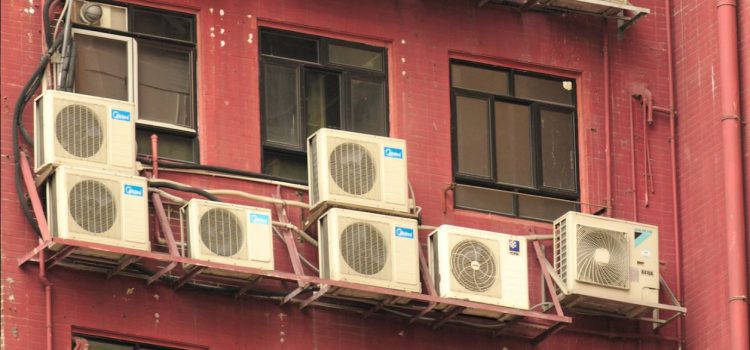
This is a free excerpt from one of Shortform’s Articles. We give you all the important information you need to know about current events and more.
Don't miss out on the whole story. Sign up for a free trial here .
What’s behind the Earth’s rising temperatures? What are the effects of extreme heat? How can governments address the looming crisis?
Global temperatures will hit record highs in the next five years, according to a report released last month by the World Meteorological Organization. There’s a 98% chance that in one of these years, the Earth will reach the hottest temperatures ever recorded.
Keep reading to learn more about the impacts of extreme heat and what can be done to counter it.
Extreme Heat Is Worsening
The US government defines extreme heat as “a period of high heat and humidity with temperatures above 90 degrees for at least two to three days.” Environmental researchers say a growing number of people around the world are living with extreme heat, and it’s not going away. Global temperatures have been rising since the 19th century, in large part due to humans burning fossil fuels and releasing gasses that trap heat in the atmosphere.
In addition to fossil fuel warming, a cyclical phenomenon known as the El Niño-Southern Oscillation contributes to global temperature increases by shifting heat in and out of deep ocean layers. Meteorologists expect El Niño conditions to return this summer and fuel record-high temperatures. Let’s take a look at the effects of extreme heat on humans.
Extreme Heat Impacts
Extreme heat disproportionately impacts poor and minority communities and people who live in cities, where expanses of black asphalt hold and radiate heat throughout the day and hamper cooling at night. Inadequate shade worsens heat troubles for city dwellers, who often have little refuge outdoors.
The top weather-related cause of death in the US, extreme heat wreaks havoc in a host of ways, including:
- Triggering acute and chronic health conditions like heatstroke and organ failure.
- Damaging infrastructure like roads and electrical wires.
- Stressing energy systems.
- Damaging and killing crops and livestock.
- Fueling droughts and wildfires.
Poorer Mental Health
According to the World Health Organization, rising temperatures are a threat to mental health as the heat makes you more anxious or depressed. Those with existing mental conditions are especially at risk—the American Psychiatric Association states that people with chemical imbalances have a harder time coping with the heat. Further, studies suggest a link between warmer temperatures and an increase in suicide rates.
Reduced Productivity
The next time you don’t get as much done as you’d like, you can blame climate change. The International Labor Organization estimates that at 91-93° Fahrenheit, you’re only working at 50% capacity. While it’s tough for office workers who have to perform complex tasks like math, it can be brutal for those working outdoors and exposed to direct sunlight (such as construction workers and farmers) and inside manufacturing plants (which can be sweltering due to heat-emitting machinery and a lack of air-conditioning).
Lower Libido
When your body works hard to cool you down on hot days, this not only reduces your ability to regulate your emotions but also lowers your sex drive. In particular, men may produce less testosterone as they divert their energy from reproduction to temperature regulation, negatively affecting arousal, erection, and ejaculation.
Excessive heat—and its impacts—are worsened by humidity, which makes people feel even hotter.
Experts say that as temperatures soar in the coming decades, more people living in excessively hot, humid parts of the world—including billions in India and China—will have to buy air conditioners.
But today’s AC units aren’t prepared to meet the extreme heat and humidity of tomorrow. The majority of traditional AC units’ energy is used not to cool, but to remove humidity from the air—an inefficient process for which they weren’t designed and one that emits considerable planet-warming refrigerants into the air.
As billions more people buy air conditioners and toggle down the temperature to beat the heat in the coming decades, more energy will be wasted and more greenhouse gasses emitted.
Looking Ahead
Experts say there will come a point when humans won’t be able to adapt to extreme heat—even over the course of centuries—because body temperature, a shared trait from 100 million years ago, evolves so slowly. If the planet warms 2.5 to 3 degrees Celsius, much of the global population will experience conditions in which the human body is simply unable to cool itself.
However, this doesn’t mean that excessive heat will suddenly kill humans. Societies can, and will have to, adapt to extreme heat.
Experts say that governments must prepare for extreme heat now, taking the following steps:
1. Cool neighborhoods. Cities should plant more trees and vegetation and use outdoor materials that reduce heat, like pavement cooling technology, to reduce temperatures in urban areas.
2. Create more shade. Urban planners should identify opportunities to provide more shade at bus shelters, school playgrounds, and other high-traffic areas.
3. Increase high-risk communities’ access to cooling. Apartment owners should provide cooling services to tenants—just as they provide heating—and cities should subsidize cooling in low-income neighborhoods.
4. Update AC testing and standards. Since billions of people living in the hottest, most humid parts of the globe will need to buy air conditioners in the years ahead, countries should prevent inefficient, outdated AC units—which aren’t tested for temperatures above 95 degrees or high humidity—from entering their homes. They can do this by updating AC standards to bring more efficient technologies to market. Swapping out new for old will reduce unnecessary energy use, reduce electricity bills, and prevent an extra 100 billion metric tons of greenhouse gas emissions—roughly two years of the globe’s carbon output—by 2050.

Want to fast-track your learning? With Shortform, you’ll gain insights you won't find anywhere else .
Here's what you’ll get when you sign up for Shortform :
- Complicated ideas explained in simple and concise ways
- Smart analysis that connects what you’re reading to other key concepts
- Writing with zero fluff because we know how important your time is






